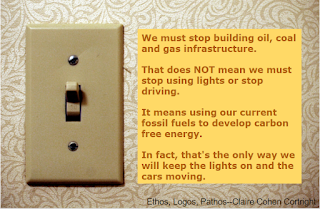A wonderful project, called
Dear Tomorrow, is collecting letters from people to their children, and others, who will be living in the future. The letters will be held in a time capsule and released in 2030 and in 2050. I had to write mine. It's not an easy task. My own children are alternately afraid of a Trump presidency and of creepy noises. One foot in childhood and one foot in adulthood. I share my fears and hopes with them, but I am wary of overwhelming them with the worst. They have lives to lead, and hearts to break and jokes to tell. They deserve to keep that. Here is my letter. I will share it with them today and submit it to the project.
I love you both.
I want the world for you. I have always wanted the world for you. I want for you to love and laugh and live. From the day each of you came into my life, I have tried to surround you with all that is good. When you were infants, I played Mozart's music and decorated with vibrant colors, We explored the world with little special trips to the zoo and the woods and the library. Even the grocery store was an adventure. As you grew, I sent you to the Montessori school and then to dance because it was best for you. I have made sure you had holidays and that I created traditions to make them special.
I want to continue to do that for you. Your needs have changed over time, but the fact that you have needs has not. You will need to build a means of making an income, you will need food on the table, you will need homes, you will need time and space to enjoy yourselves, to love, to laugh and to live.
So as you stepped out of the nursery, and I looked around at the wider world, I realized that Mozart's music and vibrant colors are no longer how to create the world I want for you. Something more dire is in its way. Climate change is threatening everything I have to offer you and it is hurtling towards us.
Now, as you move forward, and I fear for what is coming as the planet warms, I read and try to make sense of how we will be impacted. Anticipating the challenges. Protecting resources to give you so that you can handle those challenges. I look at our house, at 1300', with space for growing food and with water that is not subject to fracking and has never failed from drought, and I think I should keep it for you. I consider the skills you might need, and how to generate resources for yourselves when I can no longer do that.
I cry sometimes, for the things I know you will not have. There will be terrible heat waves and sea level rise will drive people from the coasts to where we live. Crops won't grow as well, so food costs will go up and means of making an income will likely go down. Little things that aren't really so little will disappear, like coffee and chocolate, taking our traditions with them. Refugees will come to our shores, and refugees will move within our own borders. There will be mold growth everywhere. Diseases like Lyme and Zika will have company. Civil strife may drive other problems and disrupt your lives. The world will be a terrifying place. How terrifying? I don't know. But it won't be all Mozart and crib toys.
So what is a mom to do about it?
Well, teach you the most important things. The most most most important thing? There is no such thing as "winning" or "losing" at life. There are wins and losses. But your life's journey is not a game to win or lose. It is your journey. Yours. Every generation before you has faced struggles, pain and hardship. And yours will too.
But every generation before you has had a chance to love, to laugh and to live. Take yours. Take it. Love. Laugh. Live.
But know this. Loving, laughing and living does not mean saying "screw it" to life's challenges. It means taking them on. It means caring enough about your world and your life to try to make it better, even when it is terrifying.
I don't know if my efforts on climate can truly impact the trajectory of carbon emissions over the next century. But I want you both to know this. Every letter I have ever written, every meeting I attended, every article I read, every post I made to move others, every item I reused, every degree I turned the heat down, every load of laundry I hung dry, every luxury I didn't buy and when I am able, every arrest I will subject myself to, these all are the point. I work on climate because I love you.
And when you walk out the door on your own, I have one thing to insist on: whatever you choose to do, do it out of love. If you do, then whether you succeed or not, your actions have mattered. Don't ever let anyone tell you your actions don't matter. Every single thing you do matters. You matter.
Whatever comes, please know that my actions are yours to keep, and carry with you. Please let them hold you close when you need them. It is the most important thing I have to give you, in the end.
With all my love, yours to carry,
Mom







